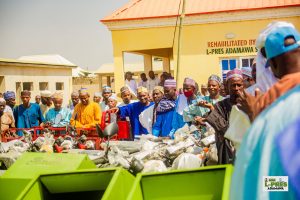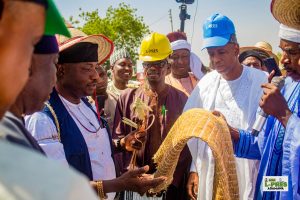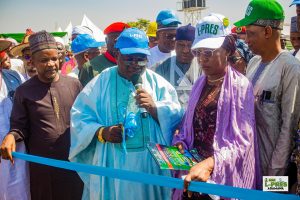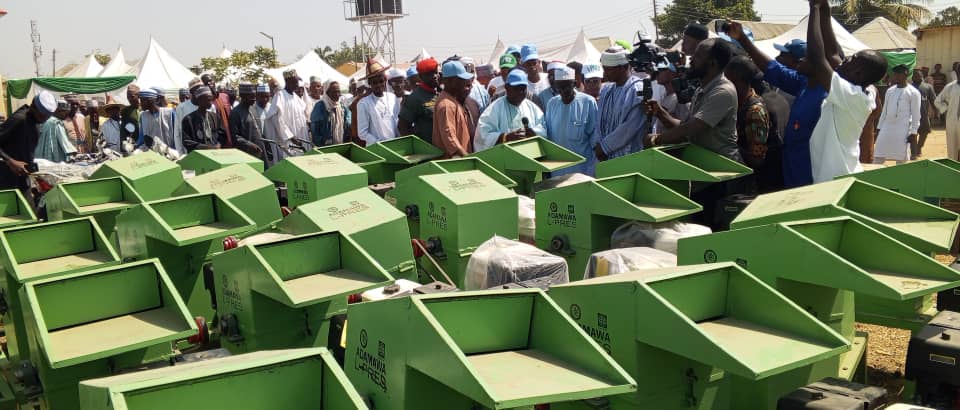
No fewer than 23,000 livestock farmers across Adamawa State have received inputs and machinery to boost productivity in one of the state’s key revenue-generating sectors.
Governor Ahmadu Umaru Fintiri, at the official launch of the project in Yola, reiterated his administration’s commitment to transforming the livestock sector, fostering job creation, and promoting peaceful coexistence between herders and farmers.
The project aligns with Governor Fintiri’s vision to drive pastoralist development. Distributed items included crushing machines, chopper machines, mineral licks, dewormers, molasses, milking cans, carry-ho machines, and other essential tools.

The State Coordinator of L-PRES, Dr. Alfa Sacondee, emphasized that Governor Fintiri’s administration is revolutionizing the livestock industry, which has already created job opportunities for thousands of youths.
The Commissioner for Livestock and Aquaculture Development, Tijanni Atiku, highlighted the significant interventions made by the Fintiri administration, lauding the partnership with the World Bank in implementing the program.
The National Coordinator of L-PRES, Sanusi Abubakar, commended Adamawa State for leading among the 20 implementing states in terms of action plans and execution of livestock development projects.
Representing the governor, Chief of Staff Dr. Edgar Amos reaffirmed the administration’s support for L-PRES and the National Livestock Transformation Plan. He urged farmers and herders to embrace peaceful coexistence.

Traditional rulers, pastoralists, and other stakeholders delivered goodwill messages, expressing gratitude for the program.
In recognition of his dedication, Dr Alfa Sacondee was decorated by Fulani pastoralist leaders with cultural honours, who commended his efforts in driving livestock development in the state.
The L-PRES program, a six-year initiative, has so far executed over 100 projects in Adamawa, aiming to improve livestock productivity, resilience, and commercialization. It also seeks to strengthen Nigeria’s capacity to address crises and emergencies affecting the livestock sector.


